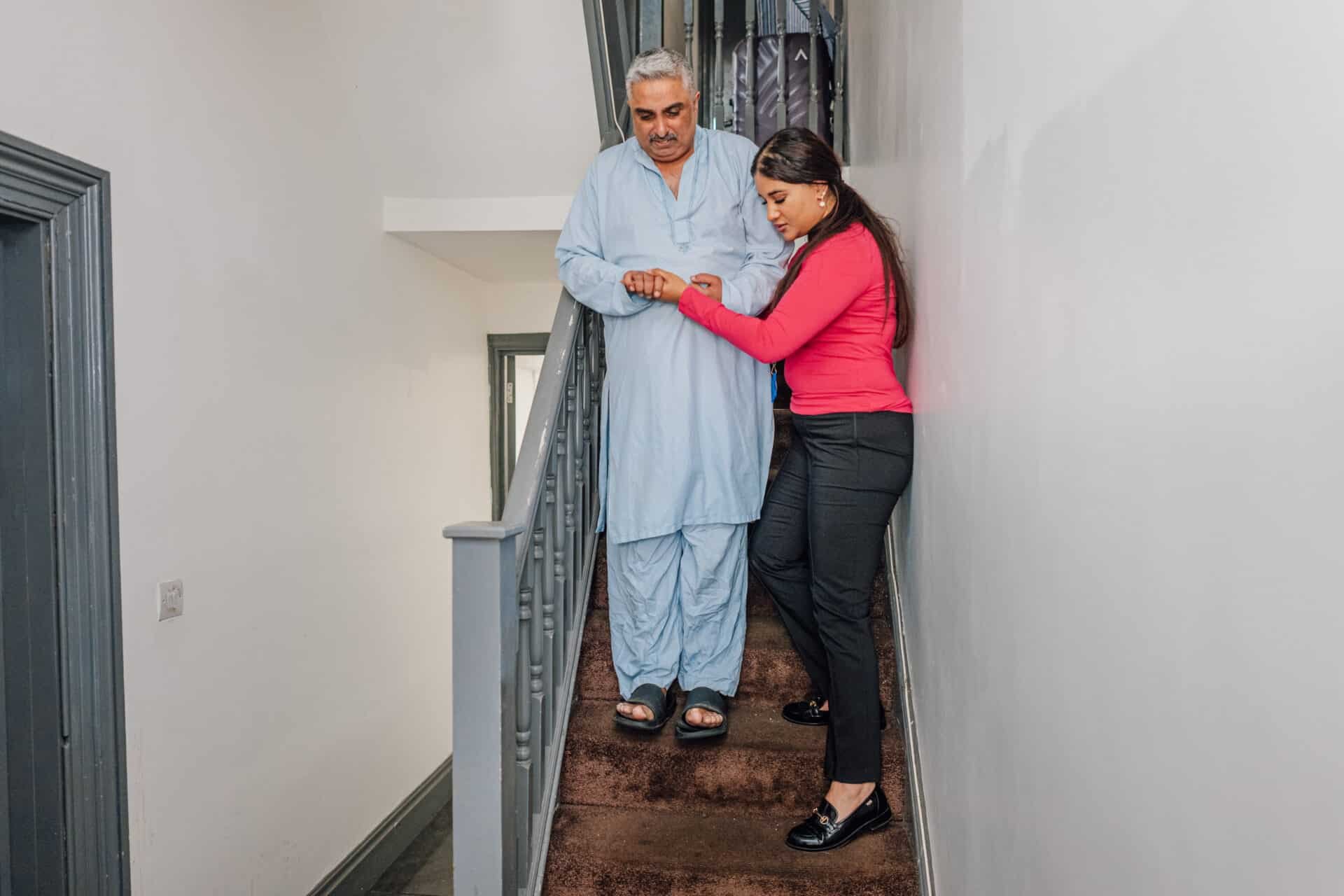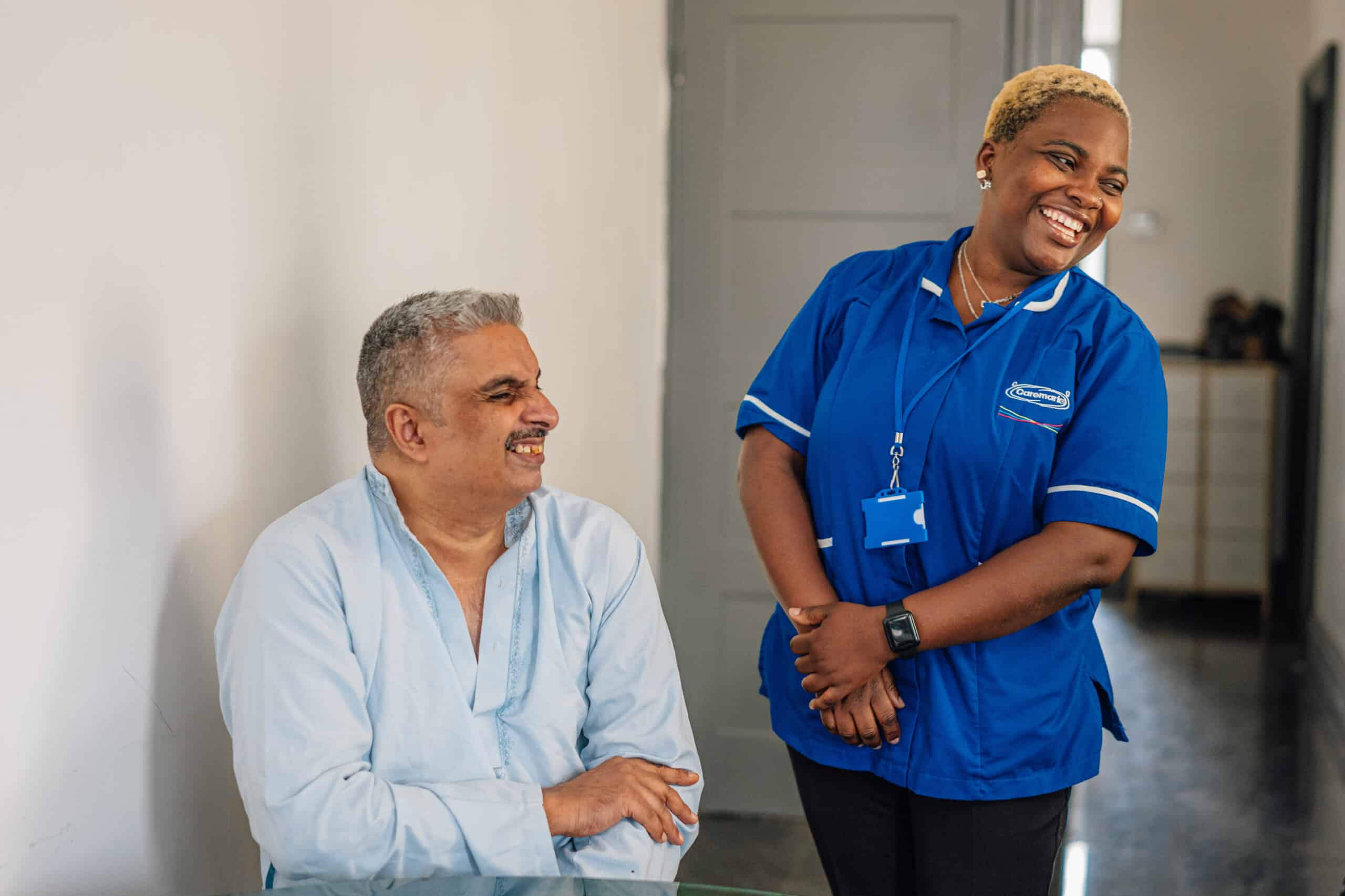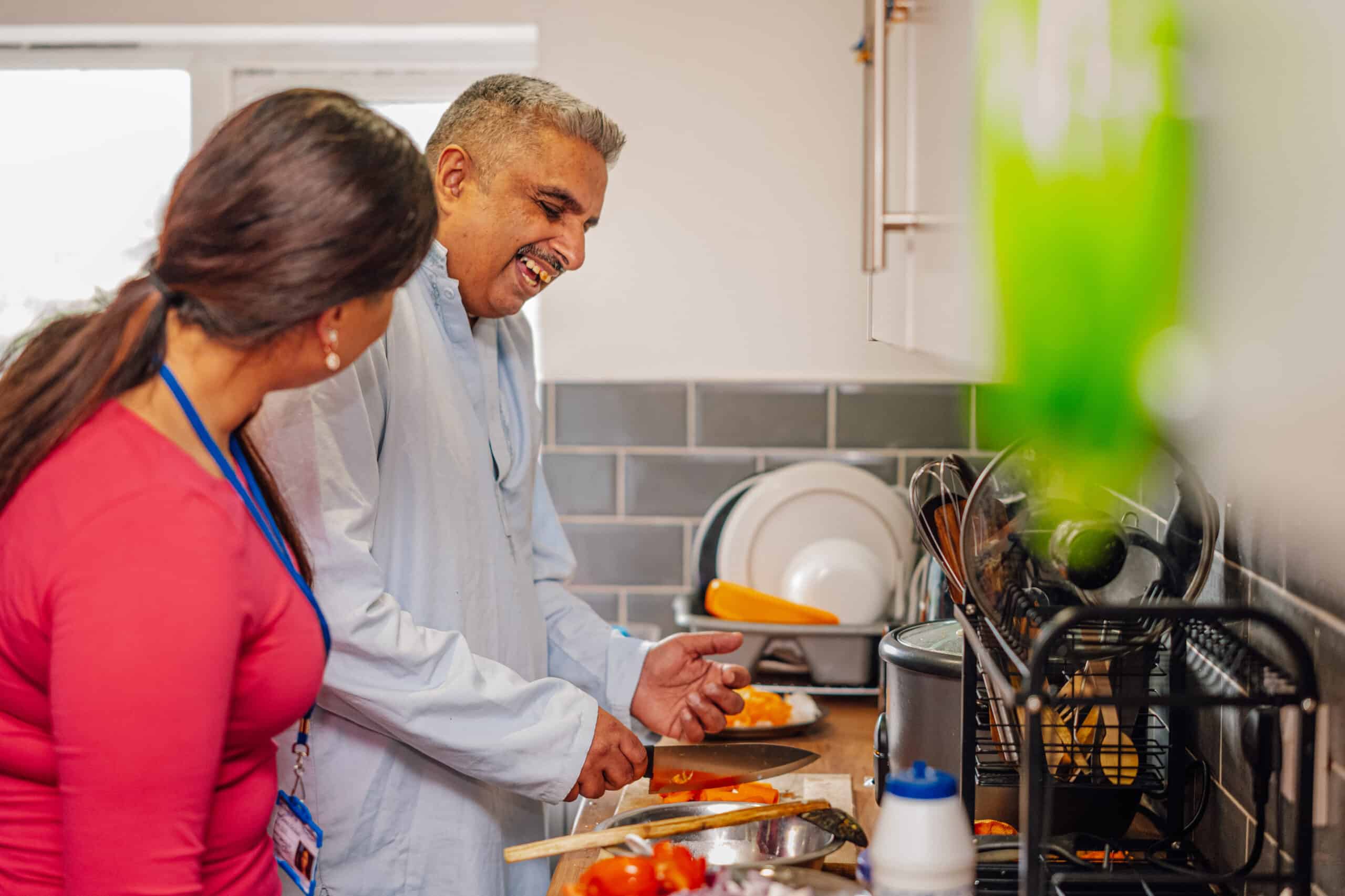Challenges Muslims Face in Accessing Care

Home care for Muslims. In an increasingly diverse UK, the provision of culturally competent domiciliary care services is more crucial than ever. Among various communities, Muslims often face significant difficulties in accessing care that respects their religious, cultural, and personal needs. As the population ages, and the demand for in-home support grows, the care sector must urgently address the barriers that prevent many Muslim individuals and families from receiving appropriate and dignified domiciliary care. This article explores the reasons why Muslims find it difficult to find suitable care providers and outlines the steps domiciliary care agencies can take to become more inclusive, supportive, and culturally aware.
Demographics and the Need for Inclusivity
It’s vital we get home care for Muslims right. According to the 2021 Census, Muslims make up around 6.5% of the UK population, with significant representation in cities such as London, Birmingham, Manchester, and Bradford. This community is diverse in terms of ethnicity, language, and cultural practices, but is united by common religious beliefs that influence lifestyle, diet, dress, modesty, gender interaction, and daily routines. When these needs are not understood or respected, it can result in feelings of alienation, discomfort, and even distrust toward care providers.
As the older Muslim population grows, there is a corresponding increase in demand for domiciliary care that aligns with Islamic values and customs. However, many families struggle to find care services that are adequately equipped to meet these expectations. The reasons for this disconnect are multifaceted.
Elderly care for for muslims: The Challenges
1. Lack of Cultural Competency
One of the most significant barriers is the lack of cultural awareness and training among care providers. Many carers may not be familiar with Islamic practices such as the importance of prayer (salah), ablution (wudu), fasting during Ramadan, or dietary laws such as avoiding pork and alcohol. Without proper understanding, care workers may unintentionally cause offence or fail to support clients in maintaining their religious obligations.
2. Language Barriers
Although many British Muslims speak English, there remains a substantial number of elderly individuals whose primary languages may include Urdu, Punjabi, Bengali, Arabic, Somali, or Turkish. Language barriers can lead to miscommunication, misunderstandings about medication, routines, or medical conditions, and an overall sense of isolation.
3. Gender Sensitivity and Modesty Concerns
Islam places a high emphasis on modesty, especially in interactions between the sexes. Many Muslim women, particularly older or more conservative individuals, may be uncomfortable receiving personal care from male carers, and vice versa. Inadequate matching of carers by gender can be distressing and discourage clients from continuing care services.
4. Religious Practices and Prayer Times
Muslims pray five times a day, and these prayers must be performed at specific times. Domiciliary care providers often operate on tight schedules, making it difficult to accommodate prayer times, especially if care workers are unaware of their importance. Similarly, the need to perform ritual washing (wudu) before prayer may require support, which some carers may be unprepared to provide.
5. Ramadan and Fasting
During Ramadan, Muslims fast from dawn to sunset. Meal schedules, medication routines, and care support may need to be adjusted during this period. Without an understanding of these practices, carers may inadvertently offer food or medication during fasting hours or fail to support the client’s altered daily rhythm.
6. Dietary Requirements
Halal food is a strict requirement for observant Muslims. This means no pork, no alcohol, and meat only from animals slaughtered according to Islamic guidelines. Care providers may not always understand or respect these rules, especially if food is prepared or sourced externally.
7. Family Expectations and Stigma
In some Muslim cultures, there is a strong emphasis on family responsibility for elder care. Turning to external domiciliary services may be viewed as neglectful or shameful. As a result, families may delay seeking help until the situation becomes critical. When care is finally introduced, it is often under considerable emotional stress and with high expectations for sensitivity and understanding.
8. Limited Representation in the Workforce
The domiciliary care sector in the UK does not always reflect the diversity of its client base. A lack of Muslim care workers or staff who understand Islamic values can contribute to feelings of being misunderstood or marginalised. Clients may feel more at ease with carers who share or respect their cultural background.

What Home Care Providers Can Do to Support Muslim Clients
When talking about home care for Muslims, or muslim elderly care, improving inclusivity and cultural competency is not only ethically important but also a practical step toward better service delivery. Below are actionable strategies domiciliary care providers can adopt to better support Muslim clients:
1. Cultural Competency Training
Training staff in Islamic customs, religious practices, and cultural sensitivities should be standard. This includes understanding daily prayer routines, dietary laws, gender preferences in caregiving, and the significance of Ramadan. Training should be ongoing, practical, and tailored to real-world care scenarios.
2. Gender-Matched Care
Offer clients the choice of a same-gender care worker for personal care tasks. This respects Islamic principles of modesty and builds trust between the client and caregiver. Where possible, schedule care visits to align with religious and cultural routines.
3. Language Support
Where there is a significant local Muslim population, hiring bilingual or multilingual staff can significantly improve communication. Alternatively, using translation services or culturally appropriate visual aids can help bridge the gap.
4. Flexible Care Plans
Care plans should accommodate religious practices such as prayer times, fasting periods, and ritual cleanliness. Providers should work closely with families to design schedules that reflect the client’s spiritual and personal needs.
5. Halal Meal Provision
Ensure that all food provided is halal, or offer clients and families the option to supply their own meals. Understanding halal certification and avoiding cross-contamination in meal preparation is vital.
6. Involve the Family
Respect and collaborate with the client’s family. In many Muslim households, family members play a central role in decision-making and caregiving. Keeping them informed and involved can improve care outcomes and client satisfaction.
7. Recruit Diverse Staff
Actively recruit carers from diverse backgrounds, including those who are Muslim. Representation matters—not only for the comfort of clients but also to build a workforce that understands and respects the varied communities they serve.
8. Community Engagement
Build relationships with local mosques, community centres, and faith leaders. These organisations can provide valuable insights, help build trust, and serve as a channel for reaching Muslim families who may be unaware of or reluctant to use domiciliary care services.
9. Policy and Documentation
Incorporate cultural sensitivity into company policy and ensure that client documentation captures important religious or cultural preferences. Forms should ask about language needs, gender preferences, prayer support, and dietary restrictions as standard.
10. Continuous Feedback and Evaluation
Create mechanisms for receiving feedback from Muslim clients and families to evaluate service quality. Regularly review and update training and care practices based on this feedback to ensure continuous improvement.

The Ethical and Business Case for Inclusivity
Inclusivity is vital for muslim old age care. Meeting the needs of Muslim clients is not just about cultural sensitivity—it’s about dignity, respect, and equality. Furthermore, in a competitive care market, agencies that actively cater to the needs of underrepresented communities can gain a strong reputation and client loyalty. Word-of-mouth recommendations within tight-knit communities can significantly expand a provider’s client base.
Inadequate care that disregards a client’s religious beliefs can lead to dissatisfaction, early termination of services, and reputational damage. In contrast, culturally aware care can greatly enhance client wellbeing, build trust, and ensure that older Muslims can live independently and with dignity in their own homes.